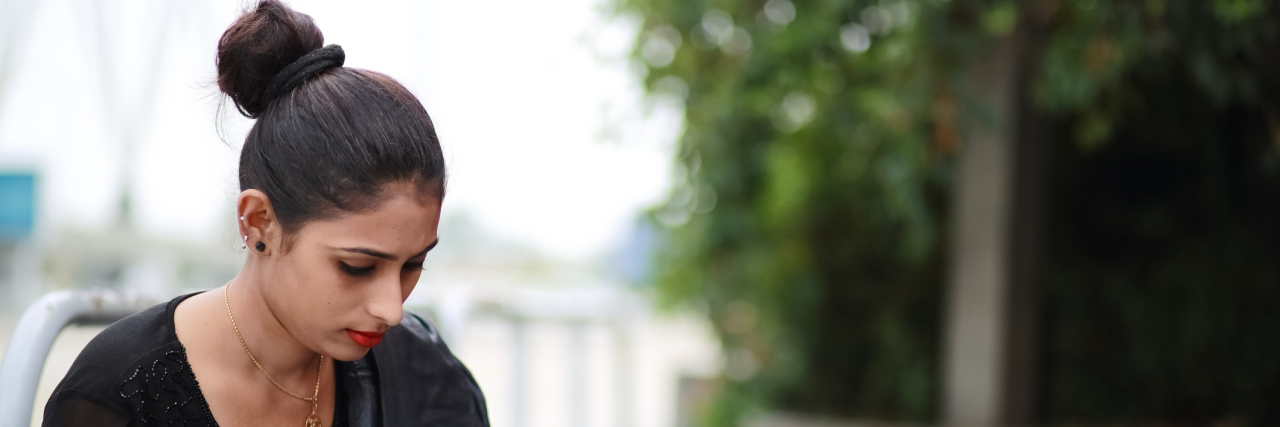I Didn't Think I Had an Eating Disorder Because I Didn't Fit the Stereotype
I am half Canadian and half Indian. My father is Indian, my mother is white Canadian. I was born in India and lived there until I was 11 years old. I speak Hindi fluently and love Bollywood. I am also a proud Canadian. I have always considered myself lucky for having two homes.
At 19, I was officially diagnosed with an eating disorder. Over the next few years, I went through several inpatient and outpatient treatment programs. I saw therapists, read books and fervently researched eating disorders, hoping to understand the complex and confusing illness that had seemingly come out of nowhere. I uncovered many potential causes for my eating disorder, but it was only many years later that I realized that being bicultural, although a gift, was sometimes a source of deep stress and isolation for me. I never felt truly part of Indian or Canadian culture. I always felt slightly out of sync — my Indian clothes were never quite on trend and neither were my Canadian clothes. My Hindi didn’t sound entirely native and neither did my English. There was also the constant criticism of my looks and my body. I was told I was too “white” to be Indian, and too “exotic” looking to be from Canada. In India, I was always criticized for being too thin, and back in Canada, I would immediately feel the pressure to go on a diet. During high school, I went from enjoying the best parts of both cultures to never feeling good enough in either.
Being bicultural and in recovery from an eating disorder was challenging. I needed to acknowledge this important part of my identity in order to completely heal. Unfortunately, minority populations are not represented in mainstream discussions about eating disorders. We are well acquainted with the stereotype of the painfully thin, young, caucasian female with anorexia. I didn’t fit this stereotype and so for two years before I was officially diagnosed, I struggled in secret, not believing I could possibly have an eating disorder. I kept thinking, “eating disorders don’t affect brown girls who aren’t underweight.”
The truth is, eating disorders can affect anyone, regardless of gender, age, cultural background, weight, size or shape. We need to start talking about the fact that eating disorders do happen in many different cultures and that they are prevalent in minority populations. It’s important that we start actively showing the many different types of people that eating disorders can affect. Had I seen an Indian girl with an eating disorder in the media, I may well have reached out for help far sooner.
To truly heal from an eating disorder, I had to dig deep. I had to explore the best and worst parts of myself. I had to question and challenge myself and take an honest look at what was going on inside me. Validating my cultural experience was integral to healing. Especially if you don’t fit the “caucasian, thin, young female” stereotype, here are a few suggestions that may help you on your healing journey:
1. Validate and talk about your cultural experiences.
Our culture background has a deep impact on who we are and validating and talking about that experience may help you figure out how to heal.
2. Actively seek out recovered people from different backgrounds and cultures and talk to them.
Ask them questions, learn from them. Peer support can be an incredibly inspiring and important part of the recovery process. Recovery does not happen in isolation.
3. When you’re ready, bust the eating disorder stereotype.
Share your story. Talk about your culture and how this played a part in your healing journey. It will inspire others to come forward. Individuals belonging to minority populations are actually less likely to seek treatment and eating disorders thrive on secrecy and shame. One of the best ways to fight eating disorders is to demystify, and destigmatize these terrible diseases.
Getty images photo via Sujay_Govindaraj

